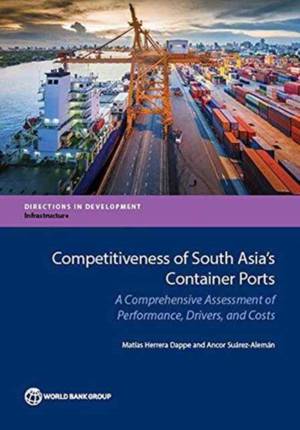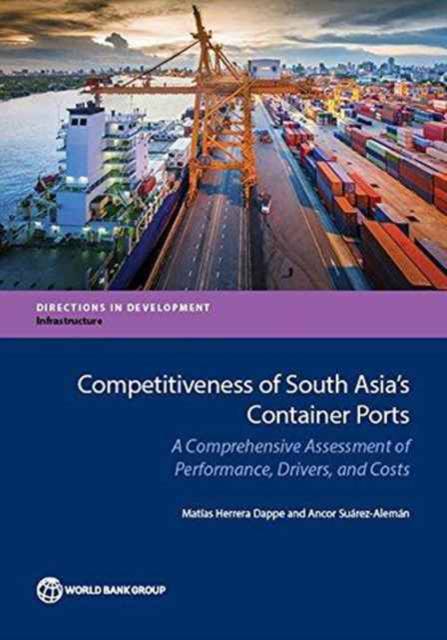
Bedankt voor het vertrouwen het afgelopen jaar! Om jou te bedanken bieden we GRATIS verzending (in België) aan op alles gedurende de hele maand januari.
- Afhalen na 1 uur in een winkel met voorraad
- In januari gratis thuislevering in België
- Ruim aanbod met 7 miljoen producten
Bedankt voor het vertrouwen het afgelopen jaar! Om jou te bedanken bieden we GRATIS verzending (in België) aan op alles gedurende de hele maand januari.
- Afhalen na 1 uur in een winkel met voorraad
- In januari gratis thuislevering in België
- Ruim aanbod met 7 miljoen producten
Zoeken
Competitiveness of South Asia's container ports
a comprehensive assessment of performance, drivers, and costs
World Bank, Mataas Herrera Dappe
€ 39,45
+ 78 punten
Omschrijving
Assesses the performance of the largest container ports in South Asia, identifies key drivers of port performance and examines how differences in performance are related to those drivers. The report also shows that improving the performance of South Asian container ports could have a dramatic effect on trade.
Specificaties
Betrokkenen
- Auteur(s):
- Uitgeverij:
Inhoud
- Aantal bladzijden:
- 115
- Reeks:
Eigenschappen
- Productcode (EAN):
- 9781464808920
- Verschijningsdatum:
- 28/06/2016
- Uitvoering:
- Paperback
- Afmetingen:
- 250

Alleen bij Standaard Boekhandel
+ 78 punten op je klantenkaart van Standaard Boekhandel
Beoordelingen
We publiceren alleen reviews die voldoen aan de voorwaarden voor reviews. Bekijk onze voorwaarden voor reviews.









